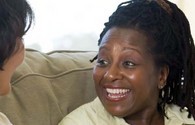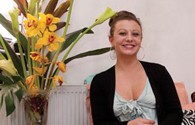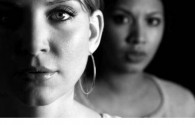
Theme
Women, homelessness and the criminal justice system
This theme explores the issues surrounding involvement in the criminal justice system for women who are homeless or at risk of homelessness and is being led by Expert Group member Catherine Hennessy, Director of Development and Partnerships at Revolving Doors. Read the theme round up here.
In an accompanying blog , Catherine writes: “Lurid tabloid accounts of those who kill or harm children garner many more column inches than stories describing the experiences of the much larger number of girls who are suffering abuse and trauma day after day. Yet, when these girls grow up traumatised and angry, we are all too quick as a society to forget the origins of that trauma, labeling and stereotyping them as lags, prostitutes, and junkies.”
A survey of St Mungo’s female clients shows that 53 per cent have an offending history; 36 per cent have been to prison. Understanding what experience have lead women to come into contact with the criminal justice system, and what in that system can help or hinder their recovery, is key to helping support women to live a life away from homelessness.
How do we make sure women get the right help, at the right time? We want to hear from practitioners on the ground and from women using services themselves, about what works and what support is missing, in particular:
- Any support services that work with women offenders, including homelessness, substance use and mental health organisations
- Police and Court/Magistrate actions with vulnerable women, including those involved in prostitution and impact on homelessness / vulnerability
- Early intervention and Court Liaison and Diversion Services that prevent homelessness
- Women’s prisons and services that support women leaving custody including resettlement
- Support for ex-offenders, including preventing re-offending and supporting recovery
Please also submit any relevant research so we can gather this together to improve the support out there for women.
If you have already joined the campaign, please log in to submit evidence. If you are not already a member, please click here to register. Send us your contributions on this theme by 26 April 2013.
Theme started on: 08 Mar 2013
28 Submissions
The topic ‘Women, homelessness and the criminal justice system’ is closed to new replies.
Internet highlights
- UK Online Casinos
- Non Gamstop Casinos UK
- Nouveaux Casinos En Ligne
- Casinos Not On Gamstop
- Casinos Not On Gamstop
- Casino Sites Not On Gamstop
- Casino Sites Not On Gamstop
- Casino En Ligne
- Non Gamstop Casino Sites UK
- Fastest Payout Online Casino
- UK Online Casinos Not On Gamstop
- Non Gamstop Casino
- Casino Online Non Aams
- Casino Online Sin Licencia España
- Casinos Sin KYC
- Reputable Non Gamstop Casinos
- Casino Sites UK
- Non Gamstop Casino UK
- Sites Not On Gamstop
- UK Casinos Not On Gamstop
- Sites Not On Gamstop
- Sites Not On Gamstop
- Lista Casino Non Aams
- Casinos Not On Gamstop
- Casinos Not On Gamstop
- Casino Non Aams
- Meilleur Site Casino En Ligne Belgique
- Meilleur Casino En Ligne Belgique
- Migliori Casino Online
- Casino Visa
- Sites De Paris Sportifs
- คาสิโนคริปโตไทย
- 카지노 사이트 추천
- Bookmaker Non Aams
- Meilleur Casino En Ligne
- Casino Bitcoin
- Casino En Ligne
- Meilleur Casino En Ligne
- Casino Crypto



